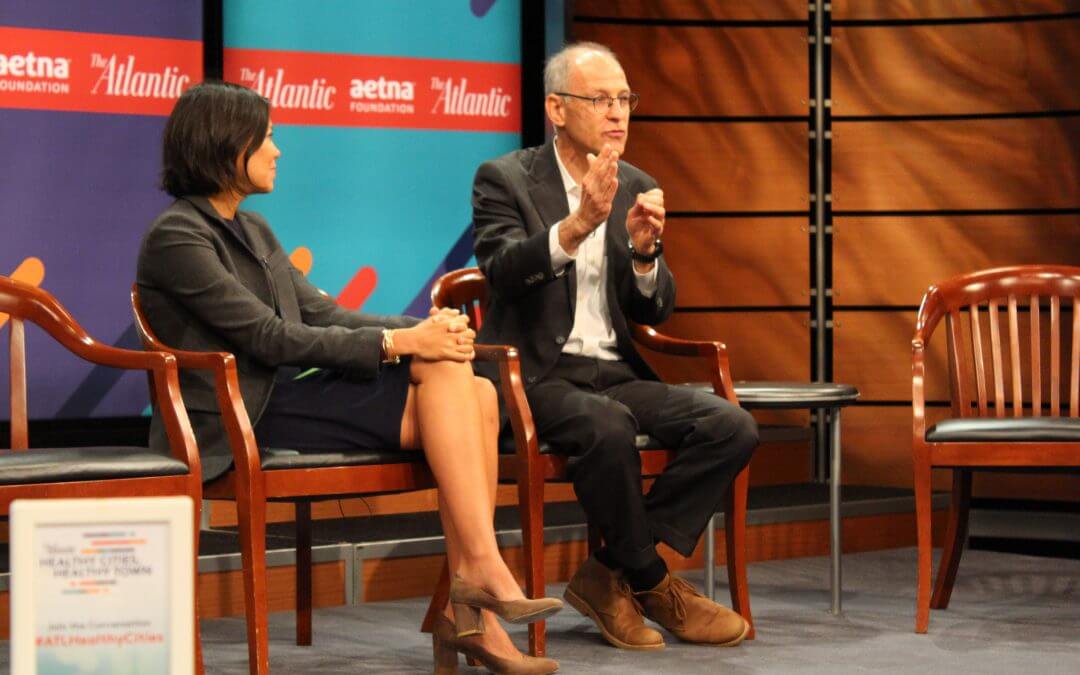WASHINGTON – Locally based exercise and health programs are the most effective way to improve American longevity, according to several municipal and community health leaders.
A panel, meeting Monday at the Newseum, focused on integrating mental health, exercise and education at the local level to get people off the couch and doing things that take off the pounds. The “Healthy Cities, Healthy Towns” forum, sponsored by The Atlantic, brought together researchers and health leaders to discuss how they made their communities healthier.
One example of an effective program is WalkWorks, an initiative operated by the University of Pittsburgh and the Pennsylvania Department of Health that encourages communities to create walking routes and bring the general public to those places. The program seeks to increase physical exercise and creates social walking groups — keys to weight loss.
Carol Reichbaum, project director of WalkWorks, said that new health policy needs to bring together law enforcement, urban planners, health care agencies, and new technology, such as mobile apps. All of this aimed at bringing down obesity rates.
Oklahoma City Mayor, Mick Cornett, who skyped into the forum took this information to change the obesity rate in his city. Collectively, Oklahoma City lost one million pounds in four years through a combination of a public awareness campaign and changing the environment in the city to make it more pedestrian friendly.
Cornett said the city altered downtown streets, walkways and community centers.
Beyond exercise programs, America can become healthier by simply talking about public health, according to Ezekiel Emanuel, chairman of the department of medical ethics and health policy at the University of Pennsylvania.
Emanuel gave credit to first lady Michelle Obama’s national Let’s Move campaign for bringing obesity to the forefront. The campaign focuses on health at all government levels, noting that the way communities are designed plays an essential role in promoting physical activity.
So why aren’t these community programs being implemented throughout the country?
They cost money and time according to Tarrant County, Texas Commissioner Roy Brooks, but eventually they will save lives and money on health care costs. Each community struggles with different health problems, aging infrastructure, income inequality and more, according to Emanuel, but homegrown programs are the best way to combat the problems.
“We didn’t get to this fat problem overnight,” Emanuel said. “We got to it over 50 years, and it will take us, hopefully not 50 years to change, but we are in the change and I’m positive about the future.”


